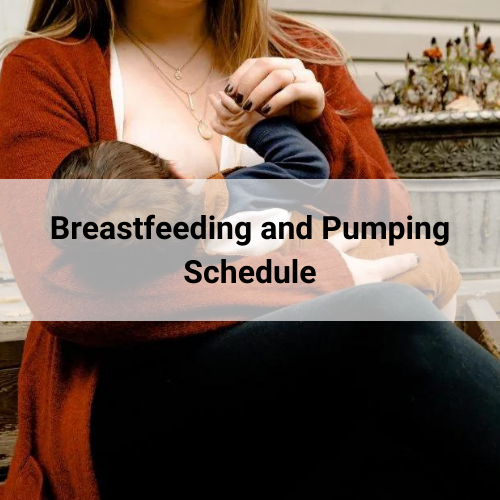Many moms describe breastfeeding and expressing while working as a second job, and this is completely valid. Not only is a mother expected to perform her duties while at her workplace, but she needs to keep up with a strict routine of expressing breast milk to maintain her supply and to provide milk for her baby while she is away.
Often, a workplace is not conducive to breastfeeding. The workplace was more than likely not designed to accommodate breastfeeding mothers, and with inadequate facilities, a large number of mothers cannot continue to express and breastfeed once they have returned to work.
The question then is how can employers offer support for breastfeeding mothers?
Table of Contents
Supporting New Mothers
There are easy-to-achieve ways that companies can provide support and the facilities that breastfeeding moms need, not only to keep up with an expressing schedule but to feel comfortable and accepted while doing so:
- Employers can provide a clean, lockable room with a comfortable chair for a woman to express in. A bathroom is not considered a clean, comfortable room.
- A refrigerator should be made available for a mother to store expressed breastmilk within. Breastmilk that is not stored at the right temperature can spoil easily.
- Comfortable seating and tables should be provided, as well as access to electrical outputs for electric breast pumps to be used.
- There should be an allowance for breaks to be utilized for expressing, free from distractions from work. A woman will have a more successful expressing session if she is free from stress, comfortable, and free from external pressures.
- A safe space should be provided, such as a locker, for the mom to keep her personal items, such as her pump, towels, and whatever else might help her during her expressing sessions.
- It is also important for the employer to remind other employees and colleagues about the importance of allowing a mother a safe space and the time to express, to create a caring and understanding environment in the workplace.
- If the work allows for it, mothers should be given the opportunity to work from home where possible. This gives her more time with her baby but still allows her to be a contributing member of the workplace.
- Employers should research state-specific laws to understand the necessary policies and procedures applicable to lactation breaks.
It may take some revamping of the work environment for employers to adapt to these changes, but ensuring a comfortable and safe space for a mother to continue breastfeeding and expressing will help her find her footing in the working world much easier than a mother that does not feel like her breastfeeding choice is being respected.
Click here to view the latest manual breast pump pricing on Amazon.

The Importance Of Breastfeeding Past 6 Months
Most moms return to work after the first 4 months of their baby’s life. This is incredibly difficult, as all the time spent at home with a newborn is now cut down to a few hours a day before and after work.
Having to maintain a breastfeeding schedule at home, and a supplementing expressing schedule at work, can be very stressful, and often overwhelming, not to mention the fact that you are still tasked with seeing to your baby’s needs and trying to maintain a full workday as well.
For this reason, and with an unaccommodating expressing environment at work, there is a large number of women who find it easier to stop breastfeeding, to ease their load a bit. As babies start solids at 6 months, many people also believe that there is no need to breastfeed as much anymore.
Taking all of this into account, it still cannot be overexpressed how important it is to continue breastfeeding after six months. There are so many benefits for both mom and baby.
Benefits for babies:
- Breastmilk supplies your baby with all the nutrients, minerals and vitamins that they need.
- Breastmilk holds antibodies and many immunologic factors. When returning to work, a baby will need to be cared for by a day mother, a family member, or at a playschool. They will be exposed to many new illnesses and infections, and breastmilk can help protect them from these.
- Breastfeeding past 6 months helps to reduce the risk of certain conditions which could occur later on in life, such as diabetes, gastrointestinal tract infections, asthma, respiratory infections, and obesity.
- Breastfeeding helps to lower the risk and duration of common illnesses, such as the common cold and ear infections.
- Breastfeeding provides comfort for a baby that is very difficult to find elsewhere.
Benefits for moms:
- Breastfeeding saves moms a whole lot of money on having to purchase formula. Breastmilk is free!
- Breastfeeding alone burns almost 500 calories a day.
- Breastfeeding is easy and convenient. There is always more milk on hand and you can never leave your milk behind.
- Many women who breastfeed or pump exclusively do not have their periods until much later on. It is natural birth control.
- Breastfeeding helps to maintain a beautiful bond between mother and baby.
- Expressing helps moms to be in control of the milk they supply their baby and still gives them the opportunity to provide milk for their baby when they are away.
One of the most challenging parts for a mother returning to work is feeling like time is being spent away from their baby. To help ease this, expressing still gives them the opportunity to provide for their baby while they are away. This creates a sense of fulfillment, even when the mother is away from their child during the day.
Benefits for the Employer
Employers should also remember that supporting and encouraging a breastfeeding mom in the workplace will be beneficial to them as well. Without the support and extra comforts offered, a mom might be tempted to leave the company, which would mean the workplace would lose out on a valuable member of the team.
Creating a comfortable environment, for all employees, creates a happy workforce. Personalizing the environment to help employees overcome obstacles, such as breastfeeding and expressing, is the best way to encourage a better relationship between employee and employer.
If employers work towards providing a safe environment to support breastfeeding mothers, more women will be encouraged to continue breastfeeding after returning from maternity leave.
Frequently Asked Questions
Unfortunately, many employers and employees are unaware of the regulations afforded to breastfeeding women at work. Due to this, there are many questions that pop up regarding expressing at work and what an employer is liable to provide for a breastfeeding mother in the workplace.

Does an employer have to allow for lactation breaks?
In most countries, and specifically the USA, women are allowed to express breastmilk at work, a right which is protected under law. An employee must be given reasonable break times throughout the day to express breast milk when needed.
What are the rights of a breastfeeding mother at work?
Employers need to ensure that breastfeeding mothers are given break times throughout the day to express breastmilk, as well as a private space made available to them, which is not a bathroom, to express in.
When should I stop expressing at work?
This is a completely personal decision and depends on how long the mother wishes to breastfeed for. The American Academy of Paediatrics recommends breastfeeding for the first year of a baby’s life, but other sources urge moms to breastfeed until two years of age.
Does breastmilk need to be kept in the fridge at work?
All expressed breastmilk needs to be stored in a chilled environment, in a fridge, to avoid it from spoiling. Nutrients, minerals, and vitamins will be lost if breastmilk is not kept in a safe environment, rendering the expressing useless.
How long can I breastfeed at work?
In most cases, the employee is required to allow a breastfeeding mother breaks throughout the day to express, for up to one year following the birth of the child.
Creating A Comfortable Environment
Not only is breastfeeding the best a baby can get, but it is so important for a mothers mental and physical wellbeing. There are so many benefits of breastfeeding and expressing when a mother returns to work, all which make it worthwhile for mothers to work their way through a busy work schedule to maintain a steady milk supply for their baby.
Working together, an environment can be created where something as natural as breastfeeding will be accepted, encouraged and made a whole lot easier for working moms. Slowly, the world is moving towards accepting breastfeeding more openly. It is a movement that can be supported by anyone, and with employers supporting breastfeeding mothers, hopefully, more women will be able to breastfeed their babies until they feel it is time to stop, not being influenced by factors in the workplace that make it difficult to do so.
Looking for a hands free electric breast pump? Click this link to view product on Amazon.
Related Articles:

Rebecca Brown
Rebecca Brown is a mom to two and writer on all things parenting. She has been focussed on content creation and article writing for the last four years, drawing on the inspiration she gets from her own experience as a mother, and the expansive research the job requires.
When not writing, you can find Rebecca outside with the kids, or hidden away enjoying a good cup of coffee!





